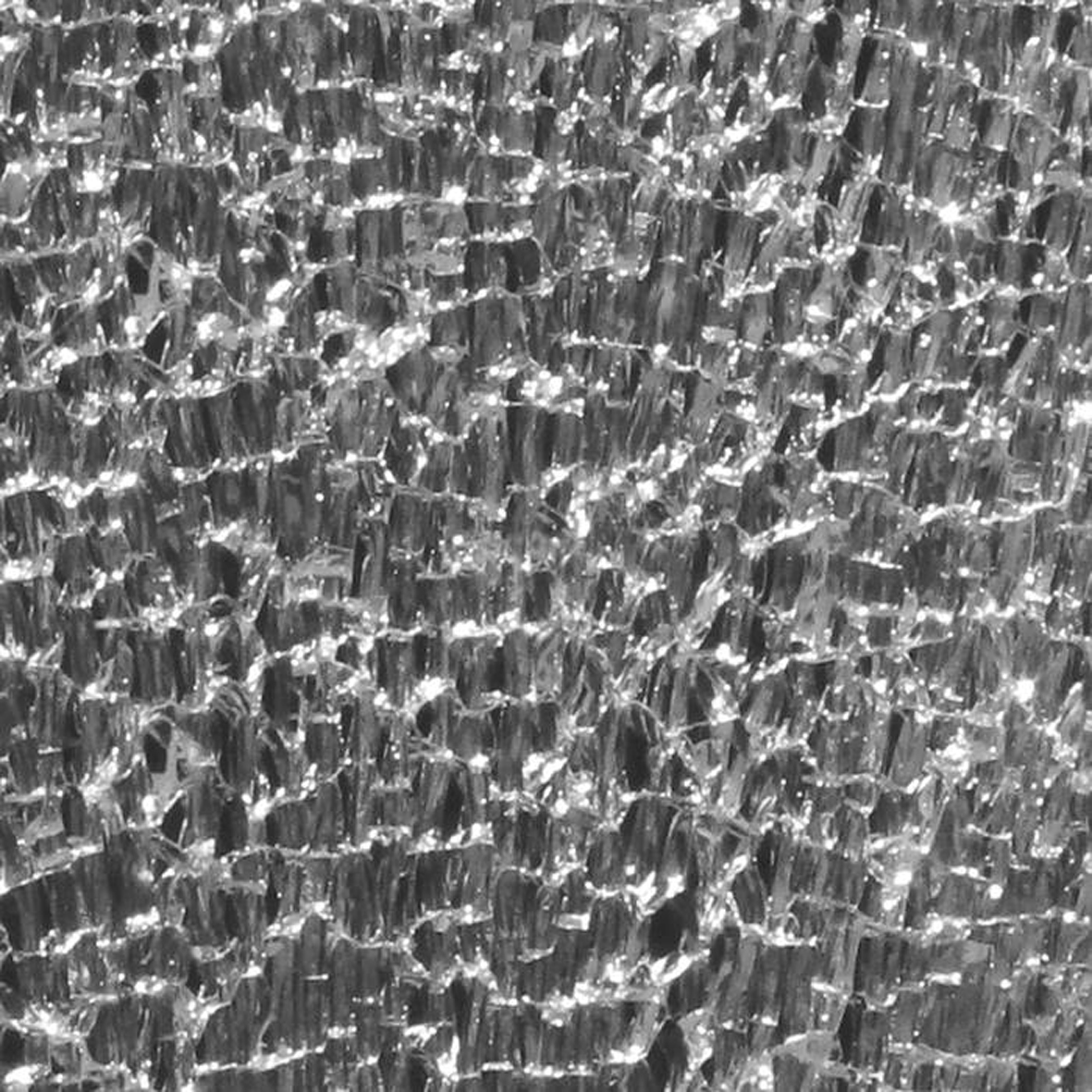
This is apparently Janek Schaefer's 30th album in 20 years, a milestone which surprised me a bit, as there is a considerable portion of his oeuvre that I have not heard.  That said, the handful of albums that I have heard have been kind of hit or miss, as Schaefer often errs a bit too much on the side of high-concept, cerebral sound art for my liking.  Glitter In My Tears, however, is right up my alley: a sustained and hallucinatory fever dream of brief and frequently beautiful vignettes (or "microcosms of haunted memory," as Schaefer himself describes them).  The inevitable downside to such an ambitious endeavor, of course, is that Glitter is exasperatingly populated with wonderfully promising themes that appear and vanish again in a minute or less.  In most hands, that would be quite a big problem, but Glitter is so uniformly strong and flows along so fluidly that I am left with little time to lament the more substantial pieces that might have been.  This is a wonderfully shifting, evocative, and immersive album from start to finish.
It would probably not be terribly far off the mark to state that almost any of Glitter In My Tears' 26 pieces would make a deceptive and non-representative opening piece, yet that somehow seems especially true of the actual opener, "Sparkles Into The Light of Night."  The primary reason is that "Sparkles" stretches out for over six minutes, making it easily the lengthiest and most substantial piece on the entire album.  It is a bit of a stylistic curveball as well though, resembling the sort of lazily swooping and space-y synth reverie that might turn up as an interlude on a late-period Pink Floyd album.  Nothing else on Glitter comes at all close to fitting that description.  In fact, the only remotely consistent thread to emerge from "Sparkles" is just that the bulk of the album is vaguely rooted in drone, even if Schaefer treats the genre a lot like a kaleidoscopic and surreal playground. Needless to say, Schaefer covers a lot of ground within those rough confines, but the strongest pieces in that vein are the lushly hissing thrum of "Beam Me Up," the oscillating modular synth pulses of "Rise," and the oversaturated hyper-minimalism of "Reflection Waves."  Similarly compelling yet somewhat different are Schaefer's eclectic and consistently wrong-footing experiments with loops.  One of my favorites is the tragically brief "Hells Bells," which loops a crackling snippet of "The Nutcracker Suite" to impressively nightmarish effect.  The unexpectedly funky and downbeat "What Comes Around" is yet another stand-out moment in loop fun, briefly threatening to turn Glitter into the unlikeliest of party albums.
There is also a third category encompassing vaguely neo-classical fare, such as the Satie-esque (if truncated) piano miniature "Looking For Love" and the heavy-bass-drone-meets-church-organ experimentation of "Low Points," though Schaefer only dabbles a little bit in that direction.  He dabbles quite a bit more in an uncategorizable fourth category that can probably be best described as "gleefully weird, one-off mindfuckery," a theme exemplified by the one-two punch of the submerged and hallucinatory "Spells" seguing into the fitful and lurching saxophone/music box duet of "Dawn Draws In." The swirling and obsessive-sounding orchestral loop of "Lagoon" is yet another fine bit of aberrant disorientation, as is the blearily Caretaker-worthy big-band jazz of "Forgetting The Way Forward."  That said, it is unquestionably "Tale of Two Angels" that takes home the prize for the single strangest interlude on the album.  For one, there seems to be at least two very bizarre things happening at once: 1.) a saccharine and beatific harp motif that sounds plucked from a religious cartoon, and 2.) a microphone placed entirely too close to some gibbering, overexcited birds.  There are some children's voices thrown into the mix as well, but the bigger twist is that the harp pattern unexpectedly turns its back on tranquility and bliss and descends into much darker and more melancholy waters without warning.  It feels a lot like a hyper-real variation upon late-night, hypnagogic channel-surfing in which nothing at all seems to make sense.
Obviously, an album like Glitter In My Tears is bit of an inherently compromised endeavor, as the joy of having such an endless tide of promising ideas wash over me is tempered a bit by my occasional frustration at hearing a wonderful motif get cut short long before its time.  "Beyond Hope" is the most striking example of the latter, as Schaefer creates an eerie and vaguely menacing soundscape of backwards piano that seems to fade in and out of focus, yet blithely traipses onward to the next idea after a mere minute.  That particular feat admittedly made me want to scream, but Schaefer otherwise exercises relatively unerring judgment, keeping the album flowing briskly, (fairly) seamlessly, and unpredictably along without ever lingering on anything longer than he should.  Failing to fully capitalize on good ideas feels like much less of a musical crime than being over-infatuated with weaker ones, but it must be said that Glitter is quite riddled with quickly abandoned one-minute flashes of inspiration.  Normally, the pessimist in me would zero in on that "countless missed opportunities" aspect, but Schaefer ultimately won me over with the sheer volume of great material that he somehow managed to pack into this album.  Admittedly, few pieces stick around for very long, yet it feels far more significant that I mentioned roughly a dozen individual pieces in this review and feel like I still probably missed a few of my favorites.  Also, I wonder if this is an unwitting glimpse into the future, as collaging raw material for roughly four albums into an accelerated and condensed whirlwind of content feels like the perfect album for humanity's rapidly dwindling attention span and escalating appetite for entertainment consumption.  As such, Glitter In My Tears may very well be a dark horse candidate for the most prophetic album of the year.  If not, it is still quite an absorbing experiment.
 
Read More

